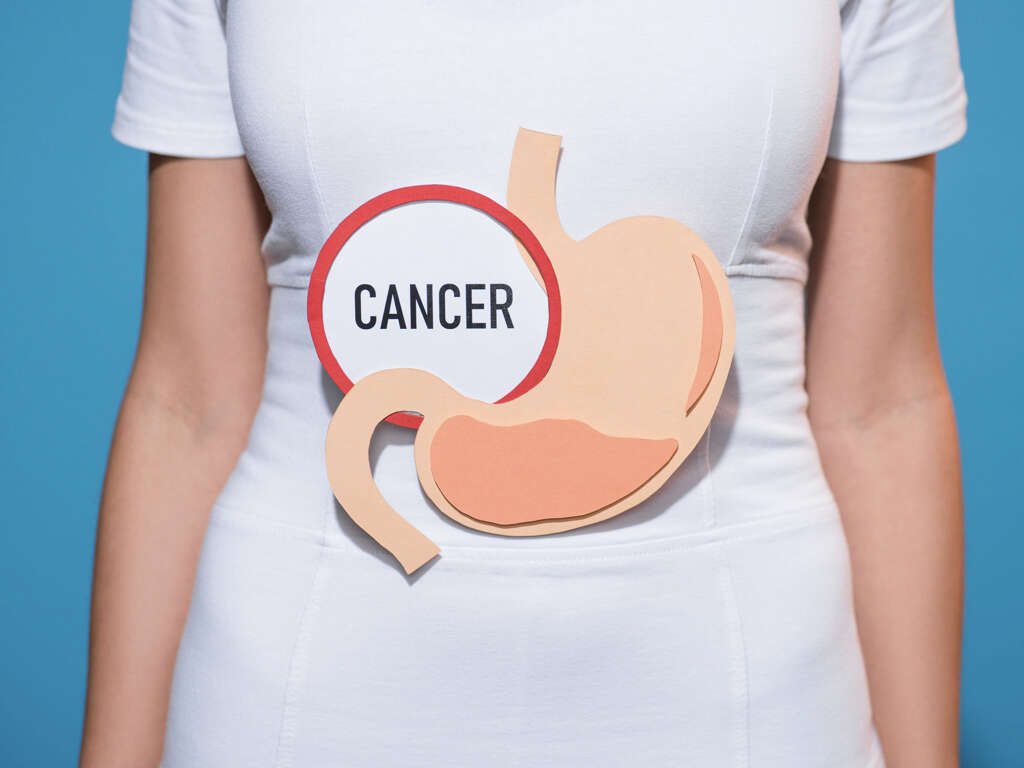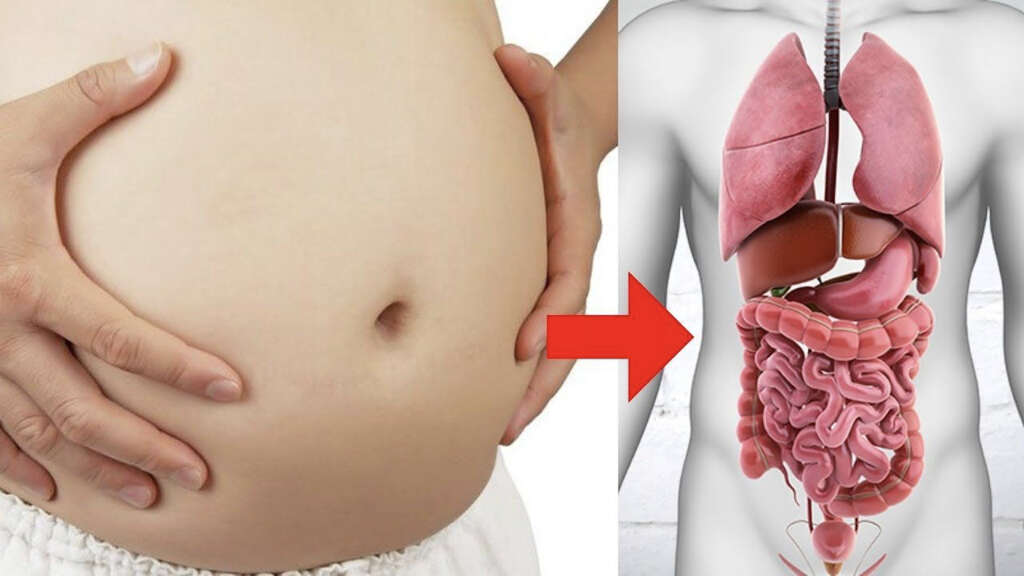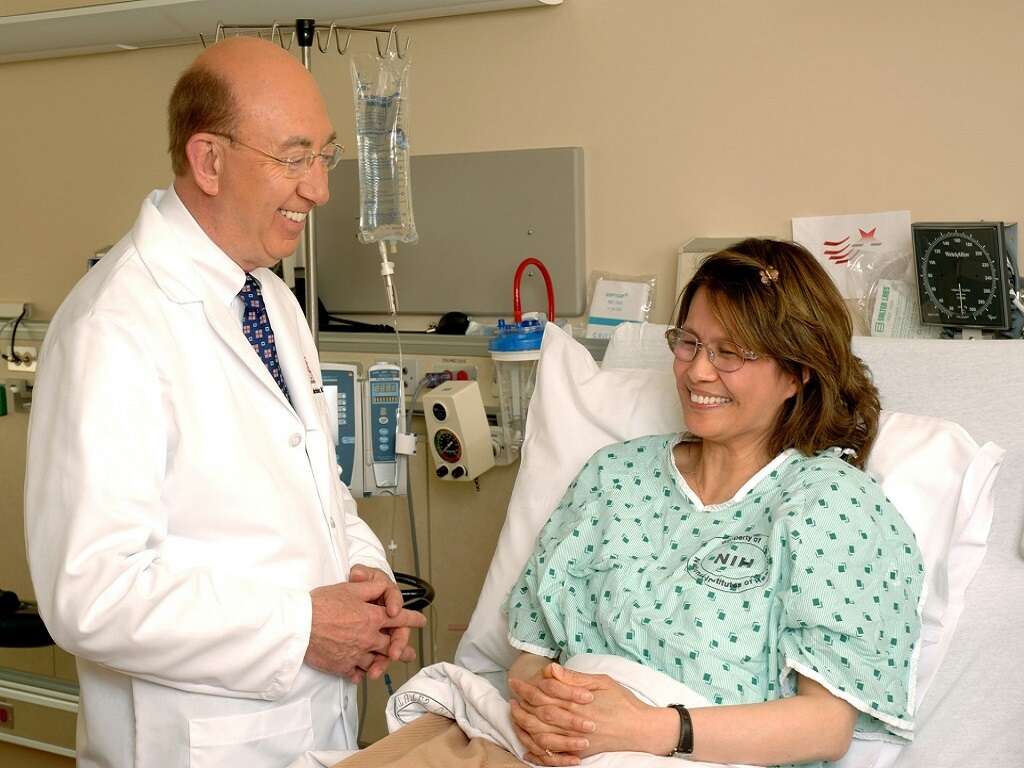Stomach Cancer Causes
Gastric cancer (cancer of the stomach) is one of the most common and deadly cancers, representing the 6th most common cancer and the 3rd most common cause of cancer-related death worldwide. It is especially common among older males and can be asymptomatic during the early stages of the disease. In consequence, by the time symptoms or physical signs of gastric cancer develop, the condition is far too advanced for curative treatment. Signs and symptoms of gastric cancer include nausea, vomiting, indigestion, difficulty swallowing (dysphagia), pallor (from anemia), weight loss, vomiting of blood, dark or black feces (melena), enlarged stomach, and certain palpable lymph nodes.
When gastric cancer involves the glands present on the lining of the stomach, it is known as adenocarcinoma. This is the most common subtype of stomach cancer, and it can be located either towards the esophagus in the upper part of the stomach (cardia), or the lower part of the stomach (non-cardia). This distinction is important because adenocarcinomas of the cardia have common risk factors with esophageal cancer (cancer of the esophagus), while non-cardia cancers do not.
The focus of this article is to describe the various risk factors associated with stomach cancer, understanding a risk factor as a characteristic, condition, or behavior that increases the likelihood of getting a disease. Note that risk factors are merely correlational, meaning that they only show the degree to which a pair of variables are related. However, they are not necessarily causal, because correlation does not prove causation. For example, obesity cannot be said to cause stomach cancer but people who suffer from obesity have greater odds of developing this disease.
1. Sex
Gastric cancer rates are considerably lower in females than males. This difference has been attributed to the protective effect of estrogen, the primary female sex hormone, against intestinal-type gastric cancer in women. For example, the risk for stomach cancer is lowered by delayed menopause (time of exposure to estrogen is increased), and it is increased with anti-estrogen drugs like tamoxifen. Furthermore, after menopause, the incidence of this cancer in women has a similar pattern to that in men. Finally, other possible factors that contribute to an increased incidence in males include diet and occupational exposure.
2.Genetic Factors
A positive family history of gastric cancer, meaning a first-degree relative (parent, child, or sibling) who has or had the disease, has been associated with a higher risk of the disease (~three-fold). In addition, certain inherited mutations of genes can increase the risk of gastric cancer.
However, interactions between these genes and environmental factors have also been shown to be key contributors to cancer development. Inherited genetic disorders, such as Lynch syndrome, hereditary diffuse gastric cancer, and familial adenomatous polyposis (FAP) can increase the risk of gastric cancer.

3. Chronic atrophic gastritis
Gastritis refers to the inflammation of the stomach lining (mucosa). It can be caused by many factors; however, in the case of atrophic gastritis, it is given by either long-term infection with bacteria, known as Helicobacter pylori, or a condition known as autoimmune gastritis (rare). The chronic inflammation of the mucosa results in atrophy, which involves several changes. For instance, a loss of gastric glandular cells occurs (cells that secrete mucus, acid, bicarbonate, enzymes, etc.), which are then replaced by a different type of lining known as “intestinal-type epithelium”, fibrous tissue, and other types of glands. This change in the lining is known as “gastric intestinal metaplasia”. In short, it is a precancerous change of the mucosa that is associated with an increased risk of cancer.
Infection with H pylori is very frequent, affecting more than 50% of the population worldwide. It is considered one of the main causes of stomach cancer; however, testing is available and it is treatable (i.e. antibiotics). Most individuals that are infected exhibit symptoms of chronic gastritis, a subgroup present with peptic ulcer disease (sores in the stomach or small intestine), and a small minority develops gastric cancer. Ask your gastroenterologist for more information on H pylori infection and gastric cancer.
4. H. Pylori
H. Pylori is a very common bacterium that infects the stomach. Indeed, it is suspected that approximately 50% of people worldwide will have been infected with it. Fortunately, the majority of people with bacteria will show no symptoms. When symptoms do arise, they are unpleasant but not usually something to be concerned about provided treatment is available.
H. Pylori is also responsible for the majority of ulcers, and the severity of these can vary considerably from person to person. In some cases, H. Pylori infections can also lead to stomach cancer. If you are experiencing symptoms of a stomach infection, you should visit a doctor if the symptoms are too severe.

5. Chemical Exposure
The chemicals that are found in certain industrial settings can cause damage that can possibly lead to stomach cancer. Occupational exposure to asbestos, dust, metals (chromium VI), talc, crystalline silica, and high- temperature particulates has been implicated in some types of stomach cancer.
If you do work with any of these harmful substances, make sure that you make use of all the necessary protective equipment.
6. Obesity
Obesity or an excess body mass index (BMI) is a strong predisposing factor in males for the development of gastric cancer. Obesity can induce the inflammation of the stomach lining via certain pro-inflammatory molecules (i.e. tumor necrosis factor-α, interleukin-6).
Also, people with a diet high in inflammatory foods (i.e. meat) and low in fruits and vegetables, have a higher risk of obesity.

7. Pernicious Anemia
Pernicious anemia is a rare disease caused by an autoimmune process that targets the parietal cells of the stomach. In consequence, these cells can no longer produce a substance known as intrinsic factor (IF), needed to absorb dietary vitamin B-12 in the small intestine. Vitamin B-12 is a vital nutrient that allows proper red blood cell production and function in the body. Thus, in the resulting vitamin B-12 deficiency, large and immature red blood cells circulate in the blood but can’t function as normal (mature) red blood cells. This leads to the signs and symptoms of anemia.
Many studies have found that patients with pernicious anemia have roughly five times more risk than the general population of gastric cancer. The link between these disorders remains unclear. Some studies suggest that chronic gastritis can lead to long-term use of a type of drug known as proton pump inhibitors (i.e. omeprazole), which can decrease vitamin B-12 absorption and cause pernicious anemia. Also, patients with this disorder and those with stomach cancer share many risk factors (i.e. alcohol abuse and smoking).
8. Diet
We all love authentic Spanish chorizo or bacon in our sandwich. However, these are cured meats and, along with other types of cured meats, they have been shown to increase gastric cancer risk. Curing refers to food preservation processes (i.e. of meats, fish, etc.) by the addition of salt and/or other agents like potassium nitrate and sodium nitrate. Diets high in these N-nitroso compounds have been shown to increase the risk of stomach cancer. Furthermore, diets high in salt have been shown to increase gastritis and the effects of known carcinogens, also leading to an increased risk for gastric cancer. Finally, a diet high in smoked foods is also a risk factor for this condition due to its high content of carcinogenic polycyclic aromatic hydrocarbons.
On the other hand, a diet high in fresh fruits and vegetables appears to lower the risk of stomach cancer.

9. Smoking
Smoking is very bad for our health. It can cause devastating damage to our lungs, potentially leaving us with severe respiratory problems, and it can have a severe impact on our overall well-being. There is also a chance that smoking can lead to lung cancer, but that is not the only type of cancer it can lead to.
Tobacco use has been shown to increase the risk of gastric cancer, particularly in the upper part of the stomach known as the cardia. Certain components of tobacco can lead to damage of the gastric lining, and this can sometimes result in cancer. There are numerous reasons to stop smoking in addition to preventing cancer, and doing so may help to make your life much more enjoyable overall, as well as longer.
10. Alcohol abuse
Drinking can be a lot of fun and it is great to enjoy a drink to help you relax at the weekends. It is well known, however, that drinking has its downsides, one of which is the potential long-term health problems. One of these potential problems is stomach cancer.
While drinking occasionally might not be harmful, heavy alcohol consumption has been shown to increase the risk of gastric cancer. However, the effect of the amount of alcohol consumed and stomach cancer risk is controversial. Alcohol is a known irritant and can erode the gastric lining. This can result in gastritis, a precursor for gastric cancer.











